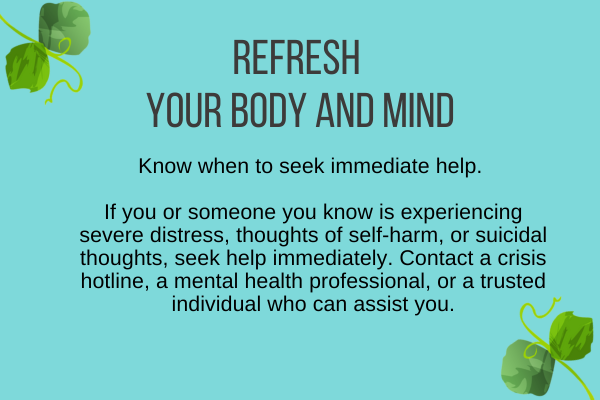Taking care of your mental health is just as important as taking care of your physical health. And sometimes, you may have wondered if what you’re feeling is a normal reaction to stress or something more serious.
If you’ve been questioning whether you might have a mental health issue, it’s important to recognize the signs and know what steps to take.
Here’s what to look out for and how to seek support:
Signs That You May Be Struggling with Mental Health
While everyone experiences ups and downs, persistent symptoms could indicate an underlying issue. Some common signs to watch for include:
- Ongoing Sadness or Hopelessness – Feeling down for an extended period with no clear reason.
- Excessive Worry or Anxiety – Constant fear or nervousness that interferes with daily life.
- Irritability or Mood Swings – Feeling easily frustrated, angry, or overwhelmed.
- Fatigue or Low Energy – Struggling to get through the day despite adequate rest.
- Changes in Sleep or Appetite – Sleeping too much or too little, or experiencing significant weight changes.
- Loss of Interest in Activities – No longer enjoying hobbies or socializing.
- Difficulty Concentrating – Struggling to focus or make decisions.
- Physical Symptoms Without a Clear Cause – Headaches, stomach issues, or unexplained aches and pains.
What to Do If You Think You Have a Mental Health Issue
If you’re experiencing any of these symptoms, know that you are not alone. Here are some steps you can take:
Talk to Someone You Trust
Opening up to a friend, family member, or mentor can provide relief and perspective. You don’t have to go through it alone.
Seek Professional Support
A therapist, counselor, or doctor can help assess your symptoms and guide you toward the right treatment. Many professionals offer virtual appointments, making it easier to access support. It’s possible that you might be experiencing a mental health challenge. Or it could be possible that you need bloodwork to determine if there is a nutritional or hormonal imbalance, but you won’t know until you speak to someone.
Prioritize Self-Care
Small daily actions can have a big impact. Focus on:
- Regular Exercise – Physical activity can improve mood and reduce stress.
- Healthy Nutrition – Balanced meals support brain function and emotional well-being.
- Mindfulness and Relaxation – Practices like meditation, deep breathing, or journaling can help regulate emotions.
- Adequate Sleep – Aim for 7-9 hours of quality sleep each night.
Consider Support Groups
Connecting with others facing similar challenges can provide reassurance and coping strategies. Many online and in-person groups are available.
Take It One Step at a Time
Healing doesn’t happen overnight. Be patient with yourself and take gradual steps to improve your mental well-being.

Wondering about your mental health is a sign that you’re paying attention to your well-being, and that’s a good thing.
By recognizing symptoms early, seeking support, and making small, intentional changes, you can take proactive steps toward better mental health.
Remember, you are not alone—help is available, and healing is possible.

